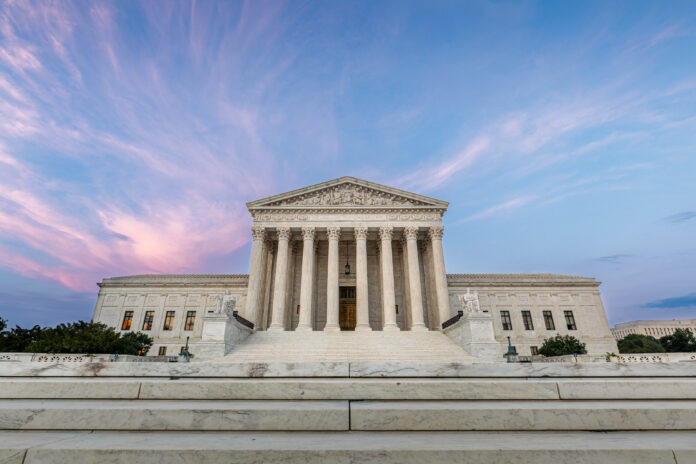
On January 26, NBC News reported that Justice Stephen G. Breyer plans to step down from the U.S. Supreme Court, with Breyer set to announce his plans at the White House on January 27. Appointed by former President Bill Clinton in 1994, Breyer, age 83, is the most senior member of the Supreme Court. He is regarded as one of three “liberal” justices on the Court. Breyer plans to retire at the end of the current term. The Court’s current nine-month term began in October of 2021 and is set to end in June of 2022.
Breyer’s retirement gives President Biden his first opportunity to name a new justice to the Court. However, because Breyer will remain through the end of the current term, the retirement will not impact major Court decisions expected this term that could dramatically shift the nation’s federal laws regarding reproductive rights, affirmative action in college admissions, and gun rights. Furthermore, Breyer’s departure and replacement will likely not shift the ideological makeup of the Court: a conservative majority, including three Justices named by former President Donald Trump, will remain.
With the potential outcome of the November mid-term elections in the air, Biden and Democrats in Congress will likely move quickly to name a successor to give the best chances for his nominee to be confirmed. During his presidential campaign, Biden pledged that he would nominate a African-American woman for a Supreme Court vacancy. It is not known who exactly is on Biden’s shortlist, but NPR reported the leading contenders are Federal Judge Ketanji Brown Jackson, who was on President Obama’s shortlist for the court in 2016 and clerked for Justice Breyer, and California Supreme Court Justice Leondra Kruger, who served as assistant, and then deputy solicitor general in both Democratic and Republican administrations prior to her nomination to California’s highest court. Whoever Biden ends up nominating, he will need to choose someone that will garner support from every member of the Democratic caucus.
Regardless of who Biden nominates, expect a fierce political and media battle ahead. Senate Democrats hold the slimmest possible majority in the Senate of 50 votes plus the Vice President as a tiebreaker. Once again, all eyes will turn to moderate “swing” voters in the Senate including Sen. Joe Manchin (D-WV) and Sen. Kyrsten Sinema (D-AZ), who could derail a nomination by withdrawing their support.
A Supreme Court nomination also adds yet another must-do item to Democrats’ to-do list. Most observers believe Democrats will lose the majority in at least one chamber of Congress in the November 2022 midterm elections, giving Democrats a hard deadline to enact priorities under one-party control. Democrats also still want to pass a version of the Build Back Better plan, a new bill to counter China’s rise, and voting reform, as well as annual defense and funding bills this spring and summer. Diverting attention and political capital to a Supreme Court fight could impact these other initiatives.
Democrats say naming and confirm a successor is a top priority. Senate Majority Leader Chuck Schumer (D-NY) vowed today that Biden’s nominee “will receive a prompt hearing in the Senate Judiciary Committee, and will be considered and confirmed by the full United States Senate with all deliberate speed.” MBS will closely follow any developments about a potential nominee and provide updates as needed.





